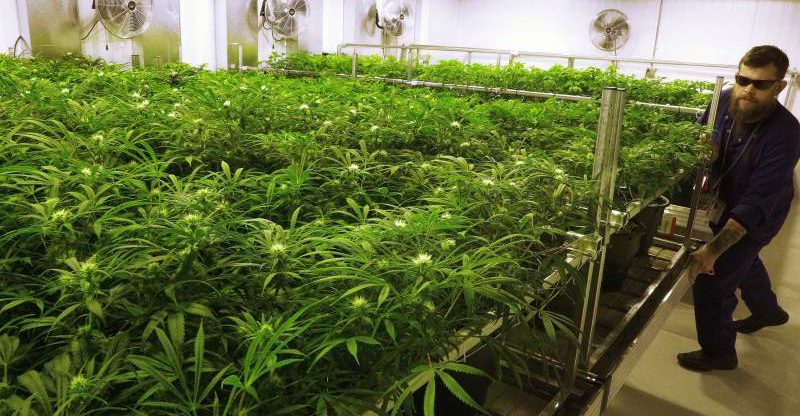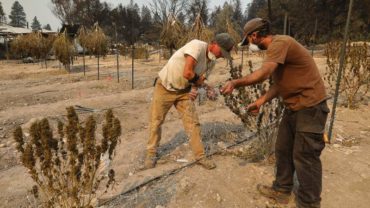Integration of cannabis into the business world is well underway in tourism, health care, law, agriculture and real estate. Prices have climbed for commercial property to be used in growing or processing cannabis. Sonoma County’s connection via the Highway 101 corridor to major cannabis-growing regions in this county and north will create a hub for distribution, processing and packaging.
“Sonoma has an opportunity to be a thought leader and set a ripple effect globally,” said Tawnie Logan, executive director of the Sonoma County Growers Alliance.
No local banks openly serve cannabis growers or operators, though bankers eye the burgeoning industry, now run largely with wads of cash for transactions. “We don’t do it because of federal problems,” said Todd Sheffield, CEO of Community First Credit Union, based in Santa Rosa. “It’s on our radar.”
Cannabis remains a Schedule I drug under the Controlled Substances Act, illegal at the federal level. Even state-chartered banks rely on the Federal Deposit Insurance Corp. to obtain insurance for accounts. A self-insured government-owned public bank has been proposed to serve the industry, and would operate without federal insurance.
No one knows whether a Trump administration will respect state law and refrain from prosecuting growers or others in the industry. Alabama Senator Jeff Sessions, nominated by President-elect Donald Trump as attorney general, said in April that “good people don’t smoke marijuana,” and he opposed its legalization.
In health care, the Medical Cannabis Regulation and Safety Act, effective in 2016, gave state and local governments until 2018 to regulate and license the medical cannabis industry. Local governments, including Santa Rosa and Sonoma County, are moving ahead with regulations and proposals to tax cannabis.
Marin General Hospital is poised to become one of the first hospitals in the country to integrate cannabis into its practice. The Marin Healthcare District Board approved forums to educate doctors, nurses, pharmacists and patients on how cannabinoids can be used to treat illness. Forums begin in January.
The new law makes it a crime for medical marijuana to be marketed, labeled or sold as grown in California when it was not. Rules being put in place to protect cannabis-growing areas resemble those created years ago to protect California wine regions. In Mendocino, a mapping project has divided the county into specific cannabis appellations, emulating the wine industry.
An appellation map will protect and promote Mendocino cannabis, where growers expressed concern about big tobacco companies such as R.J. Reynolds buying land, said Justin Calvino of the Mendocino Appellations Project. There are also concerns about land grabs from individuals outside the area, who might dilute Mendocino cannabis.
The map also has growers talking about terroir, the soil and climate conditions that give wine grapes or cannabis buds particular flavors and aromas, with visions of one day luring tourists to visit local cannabis-tasting rooms.
Cannabis cultivation is a form of agriculture, and supervisors in Sonoma County have tackled issues of zoning, water quality, odor mitigation, fertilizer use and waste management.
“We will be one of the premier commercial cannabis seats of California,” Logan said.
This story originally appeared in the North Bay Business Journal








